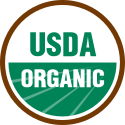National Organic Program


In the United States, the National Organic Program (NOP) is the federal regulatory framework governing organic food. It was made law in October 2002,[citation needed] and is administered by the Department of Agriculture (USDA). The Organic Food Production Act of 1990 (7 U.S.C.A. § 6501-22) required that the USDA develop national standards for organic products.[1] The regulations (7 C.F.R. Part 205) are enforced by the USDA through the National Organic Program under this act.
It covers in detail all aspects of food production, processing, delivery and retail sale. Under the NOP, farmers and food processors who wish to use the word "organic" in reference to their businesses and products, must be certified organic. Producers with annual sales not exceeding $5,000 US are exempted[2][citation needed] and do not require certification (however, they must still follow NOP standards, including keeping records and submitting to a production audit if requested, and cannot use the term certified organic). A USDA Organic seal identifies products with at least 95% organic ingredients.
There are currently 56 U.S. domestic certification agencies accredited by the USDA, including Organic Crop Improvement Association, CCOF, Quality Assurance International (QAI), and Indiana Certified Organic. There are also 41 accredited foreign agencies that offer organic certification services.[3]
The NOP covers fresh and processed agricultural food products, including crops and livestock. It does not cover non-food products that may be sold as organic, including natural fibers (eg: organic cotton), and health and beauty products (eg: organic shampoo).
The National Organic Program has fewer than twelve total employees.[4] On February 4, 2008, it announced that it was reorganizing into three divisions: Standards Development and Review; Accreditation, Auditing, and Training; and Compliance and Enforcement.[5] The latter position remains unfilled.
In August 2008 the NOP announced that 15 of 30 federally accredited organic certifiers had been placed on probation for various violations of USDA organic standards.[4]
References
- ^
"Background Information". USDA. 2002.
{{cite web}}: Cite has empty unknown parameter:|coauthors=(help); Unknown parameter|month=ignored (help) - ^ Organic foods: Are they safer? More nutritious?
- ^ List of Accredited Certifying Agents
- ^ a b http://www.alternet.org/environment/94146/is_your_organic_food_really_organic/
- ^ http://www.ams.usda.gov/AMSv1.0/getfile?dDocName=STELPRDC5066878&acct=nopgeninfo,ref?
External links
- Standards of the National Organic Program - 554 page document of all the details of organic standards. Includes national list of prohibited and allowed substances (beginning on page 425).
- The National Organic Program - Official USDA site, includes full text of the standards and regulations.
- 38 Non-Organic Ingredients Found in 'USDA Organic' Foods
